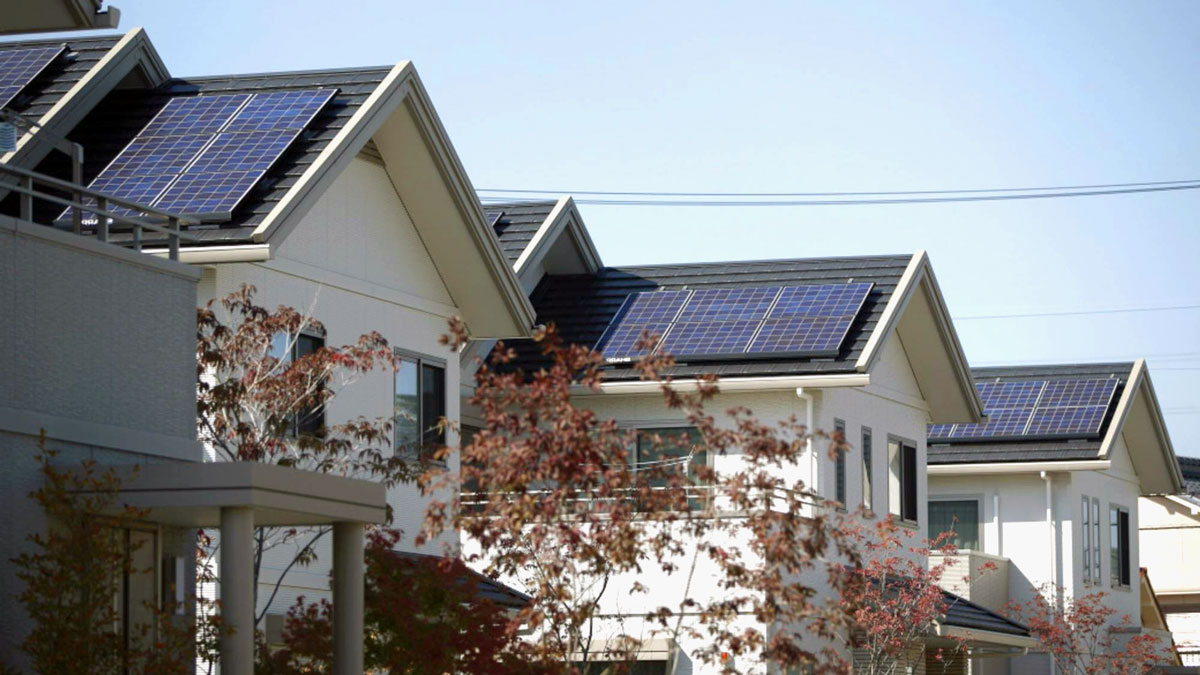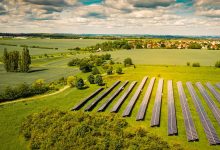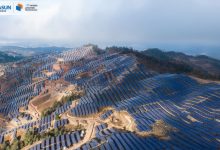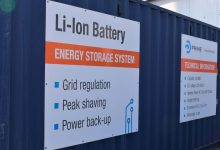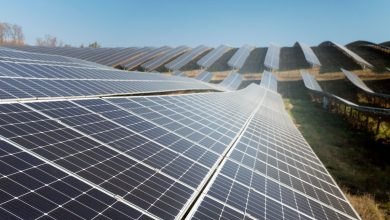Prosumers to Benefit from Quantitative Compensation
At the proposal of the Romanian Ministry of Energy, Government adopted an Emergency Ordinance (GEO) amending and supplementing the Electricity and Gas Law No. 123/2012 and amending the Law setting the promotion system for the production of energy from renewable sources No. 220/2008. Therefore, under the new GEO, prosumers (200 kW) will benefit from quantitative compensation, and electricity suppliers are required to purchase electricity, at the request of prosumers that produce electricity in energy production units with an installed power between 200 kW and 400 kW.
Adoption of the new GEO takes place in the context of transposition into the national law of Directive (EU) 2019/944 on common rules for the internal market for electricity.
The amendments brought by GEO include the following:
- Mayor’s offices (ATUs) may co-finance the expansion of natural gas networks.
- Prosumers (200 kW) will benefit from quantitative compensation and electricity suppliers are required to purchase electricity, at the request of prosumers that produce electricity in energy production units with an installed power between 200 kW and 400 kW.
- Free connection to energy and gas networks for all household customers.
“We want to encourage as many Romanians as possible to install sources for the production of green electricity and therefore be compensated. At the same time, a number of long-awaited changes have been made to the financing of projects for the development of energy and gas transmission networks, as well as clarifications regarding the costs of connecting household customers. The adoption of the GEO was a priority, including in the governing program,” stated Energy Minister Virgil Popescu.
The most important provisions refer to:
- The concession-granting authority for the public utility service of gas distribution/ATU may decide the extension of the concession area for one or several localities belonging to the administrative and territorial unit within which, for at least one locality, the service has already been granted in concession. The extension of the concession area is made by an addendum to the concession agreement concluded with the concessionaire from the respective area, addendum which is sent to ANRE within 30 calendar days from the signing. The financing of gas network extension is made, mainly, by the concessionaire from its own funds, within the limits of the annual investment plans and prioritized in conditions of economic efficiency.
- The investments made by distribution operators in accordance with the provisions of this article represent investments in regulated assets, and their recovery is made through the distribution tariffs, according to ANRE regulations.
- In order to extend the public service of gas distribution, the local authorities/other institutions participate with third party financing, including from the local budgets, in which case the sustained investments are not remunerated through regulated tariffs.
- The distribution operator has the obligation to ensure, within the limit of annual investment plans, the financing and realization of modernization/extension works for the electricity distribution network in order to connect all the applicants within the concession area, in conditions of economic efficiency. Distribution operators draw up the annual investment plans taking into account the ATU requests regarding the regional or local development plans and the urbanism plans.
- By way of exception from the provisions of paragraph (3²) and in accordance with the provisions of ANRE regulations, applicants may ensure the financing of the works for the extension of the electricity distribution network, following that at the completion of the established time period, the distribution operator to return the due amount established, according to ANRE regulations…
- For applicants’ applications for connection, the distribution operator has the obligation, in accordance with ANRE regulations, to issue for the applicant a technical approval for connection including the technical solution of connection. The applicant is entitled to choose freely any economic operator authorized by ANRE for the design and execution of the connection. In order to ensure the quality of execution works and commissioning of the connection, the applicant or the economic operator designated by the applicant for design/execution has the obligation to conclude a connection agreement with the distribution operator. The commissioning of the connection and the installation of metering devices/equipment shall be made according to the terms and conditions provided by ANRE regulations.
- In the case of household customers, upon commissioning of the connection, the distribution operator will repay to the applicant the equivalent value of connection design and execution works, up to an average value for a connection, established according to a methodology approved by ANRE. The assets resulting from the connection works shall be property of the distribution operator from the moment of commissioning, under this law, at the value reimbursed to the household customer. These assets are recognized by ANRE as part of the regulated assets base from the date of full repayment. The average value of the connection does not include the costs of restoring the municipal infrastructure.
- In the case of non-household customers, the equivalent value of connection works, including those for the design of the connection, made according to para. (34), shall be borne in full by them. The assets resulting from the connection works shall be property of the distribution operator from the moment of commissioning, under this law, without being recognized by ANRE as part of the regulated assets base.
Prosumers
Prosumers that hold units for the production of electricity from renewable sources with an installed power of no more than 400 kW per place of consumption may sell the electricity produced and delivered into the power grid to electricity suppliers with which they have concluded electricity supply contracts, according to ANRE regulations.
Local public authorities that hold electricity production capacities from renewable sources made, in full or in part, from structural funds, benefit from suppliers with which they have an electricity supply contract, upon request, from the service of financial regularization between the energy delivered and energy consumed from the network.
Electricity suppliers are required, at the request of prosumers producing electricity in electricity production units with an installed power of up to 200 kW and with which they have electricity supply contracts concluded:
- a) to apply in prosumers’ invoices a quantitative compensation, i.e., to invoice only the difference between the amount of energy consumed and the amount of energy produced and delivered into the network.
- b) to carry forward in prosumers’ invoices, if the amount of energy produced and delivered into the network is higher than the amount of energy consumed, the difference between the quantity delivered and that consumed, prosumers being able to use the amount of energy carried forward for a period of maximum 24 months from the invoicing date.
Electricity suppliers are required, at the request of prosumers producing electricity in electricity production units with an installed power between 200 kW and 400 kW and with which they have electricity supply contracts concluded:
- a) to purchase the electricity produced and delivered according to para. (1) at a price equal to the weighted average price registered on the Day-Ahead Market in the month in which that energy was produced.
- b) to apply in prosumers’ invoices the financial regularization between the electricity delivered and the electricity consumed from the network.
The natural person prosumers referred to in para. (1), other than those organized according to the Government Emergency Ordinance No. 44/2008 on the development of economic activities by self-employed, sole traders and family-owned businesses, as amended and supplemented by Law No. 182/2016, may carry out the activity of trading the electricity produced in the electricity production units they own, without registration and authorization of their operation.
Electricity distribution operators are required to connect the prosumers referred to in para. (1) and the public authorities referred to in para. (2) in accordance with the specific regulations issued by ANRE for this purpose.
Prosumers, natural and legal persons and local public administration authorities that own power plants that produce energy from renewable sources, referred to in para. (1), as well as natural or legal persons that own electricity production units from renewable sources are exempt from the obligation of annual and quarterly acquisition of green certificates provided for in Article 8 para. (2) and (21) of Law No. 220 of October 27 2008 for the establishment of the promotion system for the production of energy from renewable sources, republished, for electricity produced and used for the own end-consumption, other than the own technological consumption of the power plant.
Notwithstanding the Law No. 227/2015 on the Tax Code, as amended and supplemented, and the Law No. 207/2015 on the Fiscal Procedure Code, as amended and supplemented, the natural person prosumers referred to in para. (1) and (4) are exempt from the payment of all fiscal obligations related to the amount of electricity produced for self-consumption, as well as for the surplus sold to suppliers, according to para. (3).
The quantitative compensation of prosumers with installations with a power of up to 200 kW will be granted until December 31, 2030, in the context of measures and actions related to reaching the commitments on the share of energy from renewable sources in 2030 mentioned in the National Energy and Climate Plan, according to an ANRE methodology, and thereafter the respective prosumers may sell the electricity produced under the conditions of para. (3) letter a), for prosumers with an installed power between 200 kW and 400 kW.


